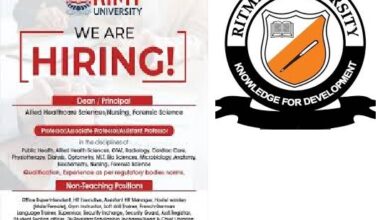Current AKTC Route and Price List 2025/2026: Full Guide for Nigerian Travelers

Current AKTC Route and Price List 2025/2026: Full Guide for Nigerian Travelers
Introduction
Traveling within Nigeria has become more challenging in recent years due to rising transport costs, security concerns, and unpredictable fuel prices. However, road travel remains the most widely used mode of transportation for millions of Nigerians because it is often more accessible and affordable compared to flights. Among the leading transport companies in the country is Akwa Ibom Transport Company (AKTC).
For years, AKTC has been a household name in Nigeria’s inter-state travel industry. It connects major cities such as Lagos, Abuja, Uyo, Calabar, Enugu, Warri, Benin, Port Harcourt, and many more. As fuel prices, inflation, and maintenance costs change, fares are regularly adjusted. For students, job seekers, business owners, and families, having an updated fare guide helps in budgeting and planning ahead.
This article provides a comprehensive breakdown of AKTC routes and ticket prices for 2025/2026, covering non-AC and AC buses, travel conditions, booking tips, safety considerations, and practical advice for anyone planning to use AKTC services this year.

Background: About AKTC
Akwa Ibom Transport Company Limited (AKTC) is owned by the Akwa Ibom State Government but operates as a commercial entity serving passengers across Nigeria.
-
Headquarters: Uyo, Akwa Ibom State
-
Operations: Inter-state passenger services, logistics, courier, and chartered buses
-
Fleet: A mix of non-air-conditioned and air-conditioned luxury buses, depending on route and class preference
-
Customer Base: Students, civil servants, traders, families, and private organizations that charter buses
AKTC is known for relatively well-maintained buses and affordable fares compared to many private operators.
Why Travelers Choose AKTC
-
Wide Coverage: Connects most South-South, South-East, and major South-West cities.
-
Affordability: Ticket prices are generally lower than some competitors offering similar AC luxury services.
-
Government Backing: As a state-owned company, fares sometimes remain more stable.
-
Booking Options: Tickets can be purchased at terminals or booked online.
-
Courier Services: Beyond passengers, AKTC transports goods and parcels nationwide.
Current AKTC Route and Price List 2025/2026: Full Guide for Nigerian Travelers
Current Transport Challenges in Nigeria
Understanding the context is important because fares are not just random. Prices are influenced by:
-
Fuel subsidy removal and diesel costs: A major factor that doubled or tripled transport costs across Nigeria.
-
Road conditions: Bad roads like Ore–Benin, East-West Road, Lokoja–Abuja stretch influence both travel time and fares.
-
Seasonal Demand: Christmas, Easter, and Sallah often come with fare hikes.
-
Security Costs: Hiring escorts for certain high-risk roads sometimes increases costs.
These realities explain why you will notice fare differences between AC and non-AC buses and between peak vs off-peak seasons.
Transport Fare – 1st January, 2026
| From | To | Price (₦) | AC |
|---|---|---|---|
| Benin | Uyo | 19500.00 | NO |
| Benin | Uyo | 24500.00 | YES |
| Uyo | Benin | 25500.00 | NO |
| Uyo | Benin | 28500.00 | YES |
| Uyo | Owerri | 8000.00 | NO |
| Owerri | Uyo | 8000.00 | NO |
| Uyo | Umuahia | 7000.00 | NO |
| Umuahia | Uyo | 7000.00 | NO |
| Uyo | Enugu | 11000.00 | NO |
| Enugu | Uyo | 11000.00 | NO |
| Uyo | Bayelsa | 11000.00 | NO |
| Bayelsa | Uyo | 11000.00 | NO |
| Uyo | Port Harcourt | 7500.00 | NO |
| Uyo | Port Harcourt | 10000.00 | YES |
| Port Harcourt | Uyo | 8500.00 | NO |
| Port Harcourt | Uyo | 11000.00 | YES |
| Uyo | Warri | 25000.00 | NO |
| Uyo | Warri | 28000.00 | YES |
| Warri | Uyo | 19500.00 | NO |
| Warri | Uyo | 24000.00 | YES |
| Uyo | Calabar | 7600.00 | NO |
| Calabar | Uyo | 7750.00 | NO |
| Uyo | Lagos | 55500.00 | NO |
| Uyo | Lagos | 60500.00 | YES |
| Lagos | Uyo | 45500.00 | NO |
| Lagos | Uyo | 50500.00 | YES |
| Uyo | Abuja | 35500.00 | NO |
| Uyo | Abuja | 60500.00 | YES |
| Abuja | Uyo | 45500.00 | NO |
| Abuja | Uyo | 50500.00 | YES |
| Uyo | Ibadan | 55500.00 | NO |
| Uyo | Ibadan | 60500.00 | YES |
| Ibadan | Uyo | 44500.00 | NO |
| Ibadan | Uyo | 50500.00 | YES |
| Uyo | Kaduna | 55500.00 | NO |
| Kaduna | Uyo | 45500.00 | NO |
| Uyo | Jos | 35500.00 | NO |
| Jos | Uyo | 40500.00 | NO |
| Calabar | Abuja | 55650.00 | NO |
| Abuja | Calabar | 45500.00 | NO |
| Calabar | Lagos | 55650.00 | NO |
| Lagos | Calabar | 45500.00 | NO |
| Calabar | Benin | 27150.00 | NO |
| Benin | Calabar | 25150.00 | NO |
| Calabar | Warri | 26150.00 | NO |
| Warri | Calabar | 25000.00 | NO |
| Calabar | Enugu | 17150.00 | NO |
| Enugu | Calabar | 17150.00 | NO |
| Calabar | Bayelsa | 20150.00 | NO |
| Bayelsa | Calabar | 20000.00 | NO |
| Calabar | Owerri | 15650.00 | NO |
| Owerri | Calabar | 15500.00 | NO |
Current AKTC Routes and Price List (2025/2026)
Below is a consolidated table showing common AKTC routes and estimated fares. Prices are one-way unless otherwise stated. Note: fares may change depending on bus type and time of booking.
| Departure | Destination | Non-AC Fare | AC Fare | Notes |
|---|---|---|---|---|
| Uyo | Lagos | ₦27,500 | ₦30,500 | Premium AC option available |
| Lagos | Uyo | ₦27,500 | ₦30,500 | Reverse trip, similar fare |
| Uyo | Abuja | ₦27,500 | ₦30,500 | Long-distance; overnight buses possible |
| Abuja | Uyo | ₦27,500 | ₦30,500 | |
| Lagos | Calabar | ₦27,650 | ₦27,650 | Fares stable both ways |
| Calabar | Lagos | ₦27,650 | ₦27,650 | |
| Uyo | Benin City | ₦15,000 | ₦18,000 | Approx. 8–9 hours journey |
| Uyo | Warri | ₦12,500 | ₦15,000 | |
| Uyo | Bayelsa (Yenagoa) | ₦8,000 | ₦10,000 | |
| Uyo | Enugu | ₦8,000 | ₦10,000 | Shorter South-East route |
| Lagos | Eket | ₦6,000 | ₦7,500 | Student-friendly route |
| Uyo | Owerri | ₦1,300 | ₦1,600 | Local, pocket-friendly |
| Abuja | Calabar | ₦8,500 | ₦10,000 | Via Lokoja corridor |
Zone-by-Zone Analysis
South-South Zone
-
Cities: Uyo, Calabar, Port Harcourt, Warri, Yenagoa
-
Fares are moderate within this zone (₦8,000–₦15,000). Shorter trips like Uyo → Bayelsa are cheaper.
South-East Zone
-
Cities: Enugu, Owerri, Onitsha, Abakaliki
-
Fares typically range from ₦8,000–₦12,000 depending on distance.
South-West Zone
-
Cities: Lagos, Ibadan, Akure
-
Long trips from Uyo or Calabar to Lagos cost ₦27,000–₦30,000.
North-Central/North
-
Cities: Abuja, Lokoja, Jos
-
Abuja–Uyo and Abuja–Calabar are among the costliest because of distance (₦27,500–₦30,500).
Current AKTC Route and Price List 2025/2026: Full Guide for Nigerian Travelers
What Determines the Price Difference (AC vs Non-AC)
-
Comfort: AC buses come with cushioned seats, air-conditioning, and sometimes in-bus entertainment.
-
Fuel Usage: AC buses consume more fuel, especially for long journeys.
-
Maintenance Costs: Spare parts for AC luxury buses are more expensive.
-
Passenger Demand: Many young professionals and families prefer AC buses, keeping demand high.
Booking Process for AKTC Tickets
-
Physical Terminal Booking
-
Visit AKTC terminals in Uyo, Lagos, Calabar, Abuja, or other cities.
-
Pay cash or transfer and collect a paper ticket.
-
-
Online Booking
-
Official booking platforms allow card payments.
-
You choose seat preference and bus type (AC or non-AC).
-
-
On-the-spot Booking
-
For short trips like Uyo → Owerri, passengers often book same-day at the park.
-
Travel Tips for AKTC Passengers
-
Arrive Early: At least 45 minutes before departure.
-
Pack Light: Extra luggage attracts charges.
-
Keep Change: Helps avoid delays at rest stops or minor levies.
-
Stay Alert: Watch belongings; use locks for bags.
-
Book Ahead in Festive Periods: Demand spikes in December and April.
Safety and Comfort Considerations
-
AKTC buses are generally safer than smaller commercial buses because drivers are trained.
-
However, check your bus condition before boarding (tires, AC functionality).
-
Use night trips cautiously; daytime journeys are safer on most highways.
Why Updated Fare Knowledge Matters
-
Students: Knowing current fares helps budget transport to schools in Lagos, Uyo, or Abuja.
-
Job Seekers: Planning interviews or relocation becomes easier.
-
Families: Reduces surprise expenses when traveling for ceremonies.
-
Business Owners: Essential for couriering goods or regular inter-state supply runs.
Current AKTC Route and Price List 2025/2026: Full Guide for Nigerian Travelers
Frequently Asked Questions (FAQs)
Q1: Are fares fixed throughout the year?
No. Prices may rise during festive periods or when fuel prices go up.
Q2: Can I get a discount as a student?
Some AKTC routes occasionally offer reduced fares for students, but always confirm at the terminal.
Q3: Do tickets cover insurance?
Yes, most reputable Nigerian transport firms include passenger insurance.
Q4: Can I book return tickets?
Yes, round-trip bookings are available in some major terminals.
Q5: Does AKTC allow parcel delivery?
Yes, you can send goods nationwide through their courier services.
Conclusion
AKTC remains one of the most reliable and affordable inter-state transport companies in Nigeria. The 2025/2026 price list reflects the realities of Nigeria’s current economic conditions—higher fuel costs, inflation, and road challenges.
With fares ranging from as low as ₦1,300 for short routes like Uyo–Owerri to as high as ₦30,500 for long-haul trips like Uyo–Lagos or Uyo–Abuja, AKTC continues to serve students, families, workers, and business travelers alike.
Staying updated with current fares, routes, and booking options helps you plan your journey, avoid surprises, and travel smartly across Nigeria.



